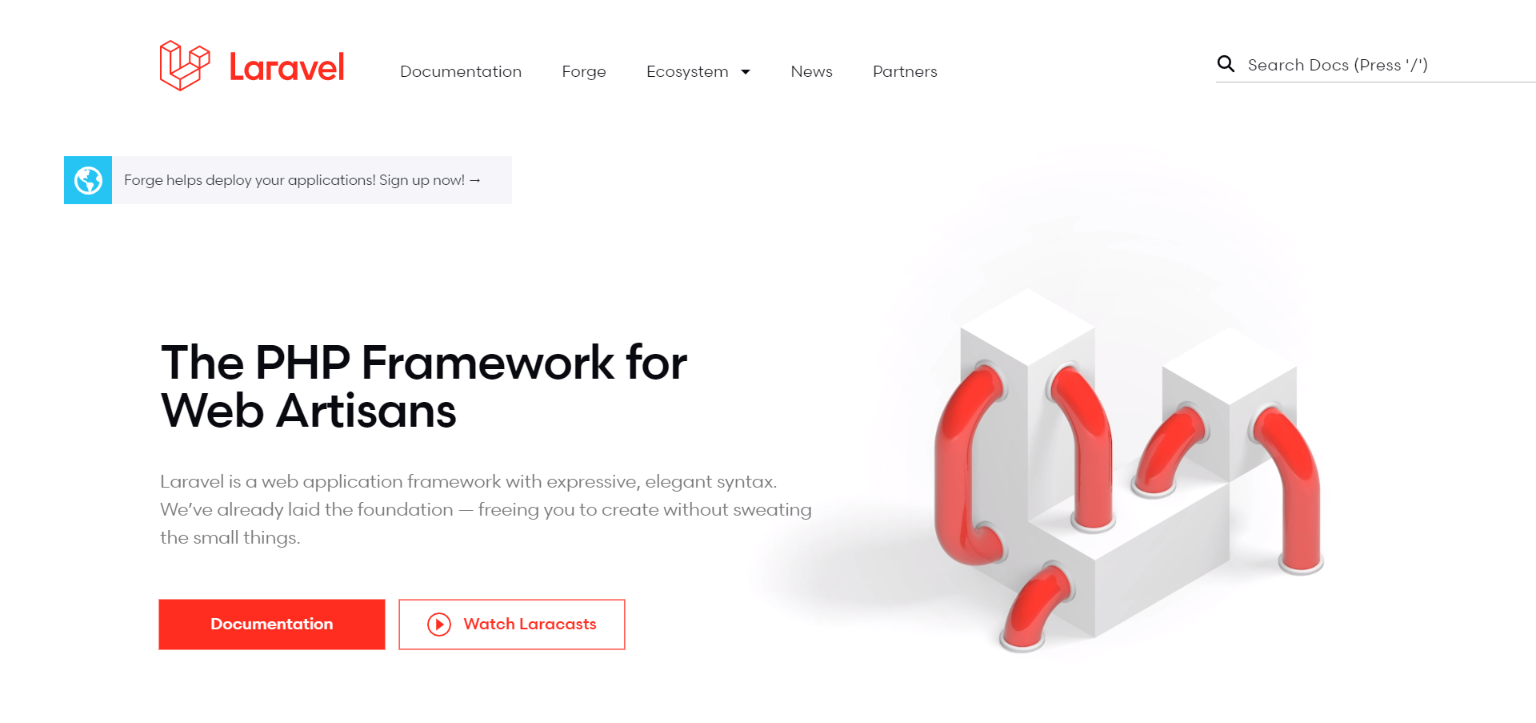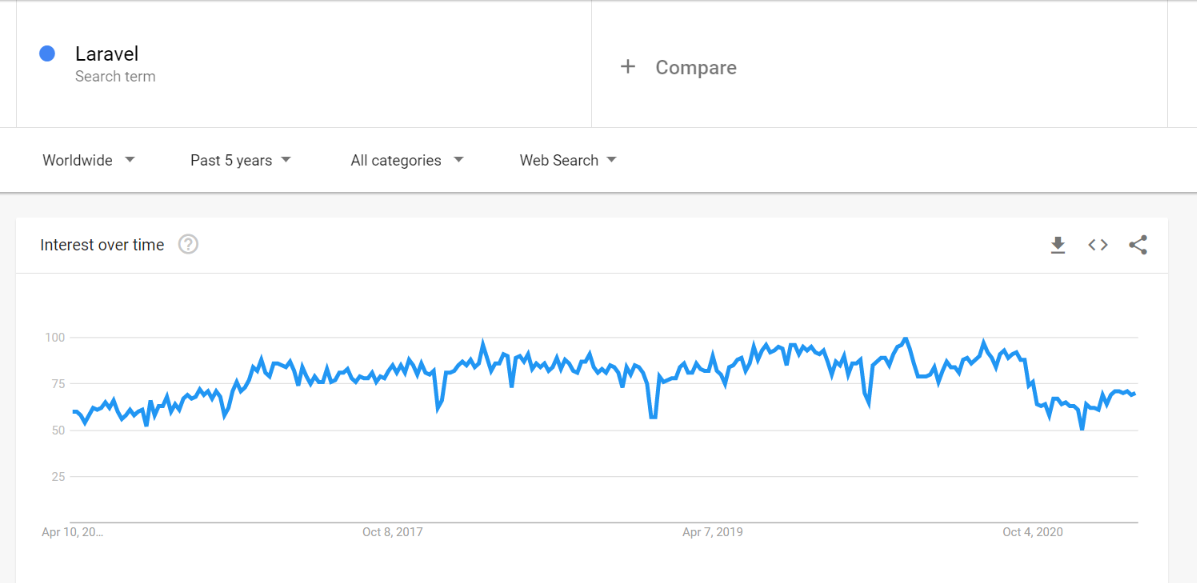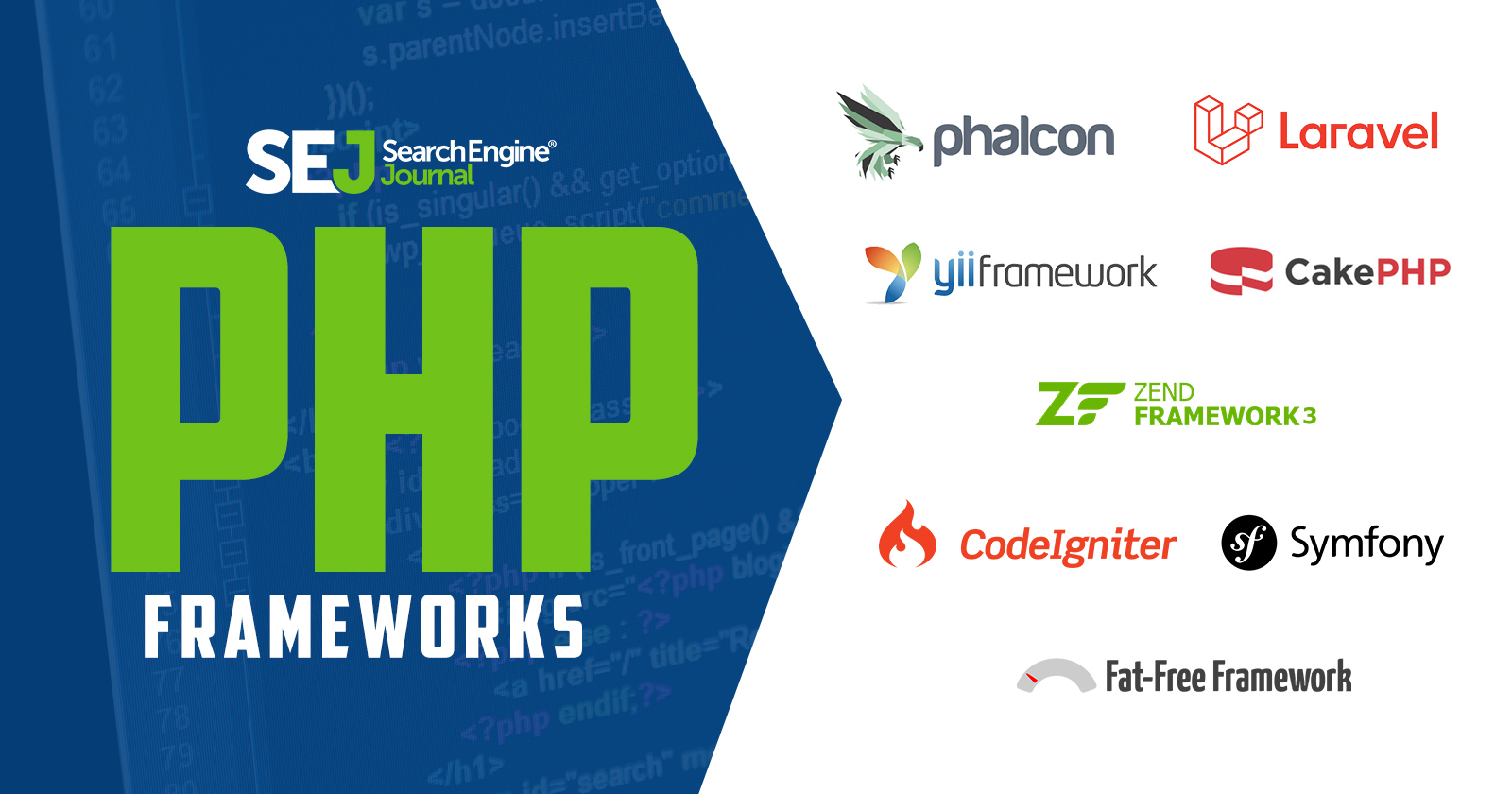This guide to the 8 most popular PHP frameworks will help you decide which one is worth learning and using for web development projects.
PHP is a server-side programming language that works well with both databases and HTML, making it a great choice for digital marketers or developers looking to learn a new language.
But what can you actually do with PHP?
In this article, you’ll find a high-level overview of the most popular PHP frameworks so you can begin imagining what’s possible with this popular language. You’ll learn about Laravel, Symfony, Zend/Laminas, Yii, CakePHP, CodeIgniter, Phalcon, Fat-Free.
See how these frameworks compare according to the following criteria:
- Simplicity and installation of the framework.
- Documentation.
- Flexibility.
- PSR compatibility.
- Project applications.
- Popularity.
You’ll also find a comparison of how many requests each framework could handle per second and learn more about what hosting can be used for each one. Let’s dive in!
Laravel

The Laravel framework allows for beautiful code writing. Laravel will help you facilitate a number of operations such as registration, routing, caching, and working with sessions.
With Laravel, the best features of other PHP frameworks and Ruby on Rails were taken into consideration.
Laravel is a simple yet powerful and flexible tool for creating large projects, even for beginners.
It has:
- Simple and clean routing.
- Easy integration with other PHP libraries.
- A simple and convenient migration system.
- Modular testing.
Installation** – **In order to install Laravel, your server should have certain modules enabled and you need to follow these requirements of the framework:
- PHP >= 7.2.5
- BCMath PHP Extension.
- Ctype PHP Extension.
- Fileinfo PHP extension.
- JSON PHP Extension.
- Mbstring PHP Extension.
- OpenSSL PHP Extension.
- PDO PHP Extension.
- Tokenizer PHP Extension.
- XML PHP Extension.
The official Laravel team recommends using Laravel Homestead virtual servers where all requirements are already met.
Documentation – This framework has fairly simple and accessible guidelines.
Flexibility – This framework allows extending its functionality. New modules and plug-ins can be installed via composer.
PSR – This framework meets the second version of PSR standards, PSR-2.
**Where this framework can be used – **This framework is an optimal choice for creating small and medium-sized projects. However, it can also be used to develop large-scale websites.
Popularity of Laravel

Yii 2
Symfony
Zend Framework 3/Laminas
CakePHP 4 Strawberry
CodeIgniter
Phalcon
Fat-Free
#php
